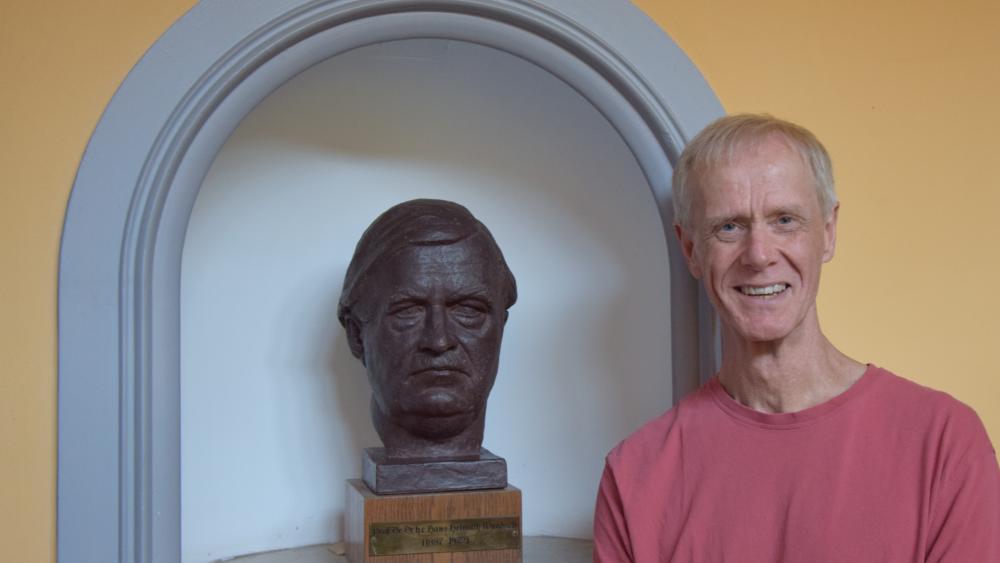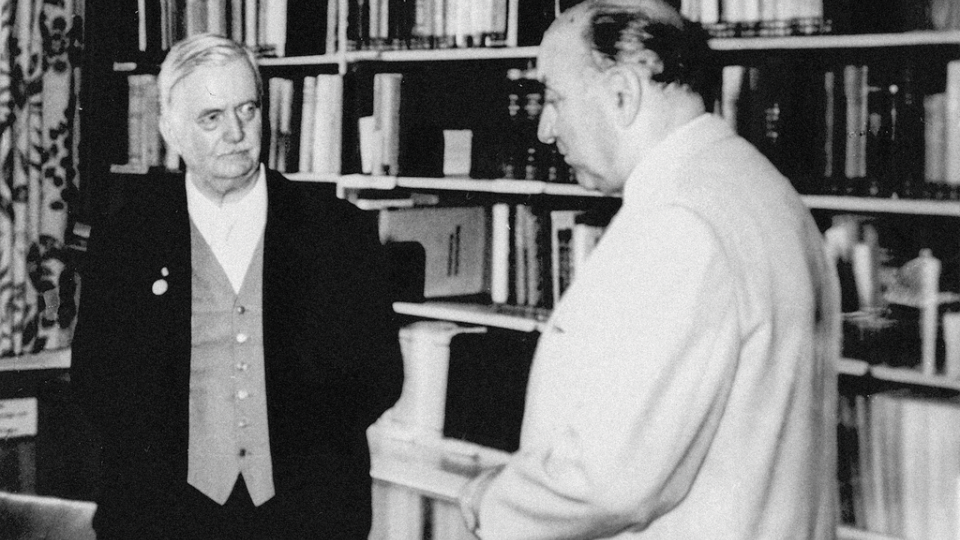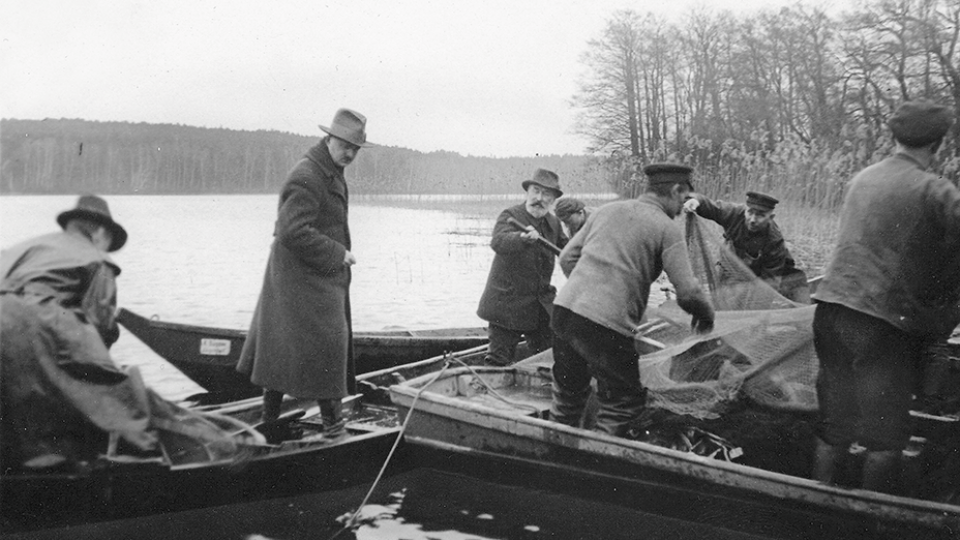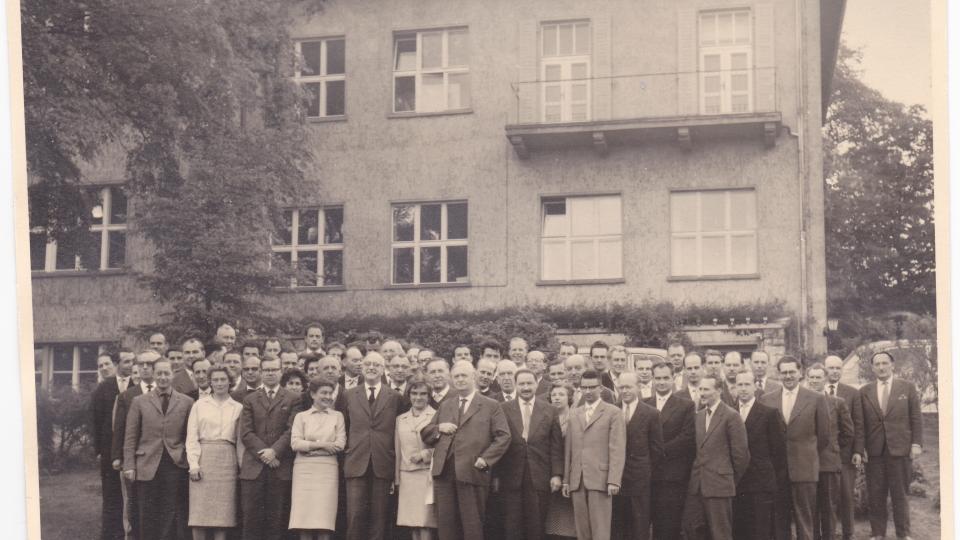
Harry Powell, grandson of Prof. Hans Helmut Wundsch visiting the IGB. Photo: Nadja Neumann I IGB
Harry Powell never met Hans Helmut Wundsch personally. An eventful family history later, he visited his grandfather's former domain for the first time in August 2019. Shortly before the beginning of World War II, Hans Helmut Wundsch and his Jewish wife Dr. Maria Wundsch, née Pauly, had sent three of their children to England, including Harry Powell's father. "My father was interned as Enemy Alien in England and Australia, later joined the British Army, was naturalised and took the name Powell. My father had very limited contact with his parents after he was sent away," Harry Powell sums up his father's moving story. All the more the grandson of Hans Helmut Wundsch is interested in fathoming his family history. This also led the crystallographer living in England, accompanied by Siegrid Strachwitz from the Bürgerverein Friedrichshagen, to the IGB. Barbara Köfler-Tockner of the IGB has intensively examined the history of the Institute and its researchers and has collected photos, stories and documents with great commitment. Many of them are published in the book "Ein Jahrhundert Forschung an Gewässern" ("A Century of Research on Waters"). So much knowledge about Hans Helmut Wundsch's many years of commitment to fisheries research in Berlin – despite all the turmoil of the war and the following political imponderables.
Dedicated commitment to fisheries research in Berlin
Hans Helmut Wundsch was director of the Prussian State Institute for Fisheries in Berlin from 1925 until 1937. In 1937, for political reasons, the Nazi regime removed him from office and forced him to retire. After the war, it was also thanks to his commitment that fisheries research was rebuilt in Berlin. From 1947 he took over the management of the completely destroyed institute at the Müggelsee, which he headed from 1952 as "Institute for Fisheries of the German Academy of Agricultural Sciences" until his retirement in 1958.
"For me today the door to the past has opened a bit further. I would like to learn a lot more about where my roots lie and am very happy to have made contact with Friedrichshagen and today's IGB," says Harry Powell after his visit.

From the left: Hans Helmut Wundsch and Wilhelm Schäperclaus. Photo: IGB

Fishing at Lake Sacrow 1925, left standing Hans Helmuth Wundsch. Photo: IGB

Group picture in front of the Institute for Fisheries of the DAL, probably on the occasion of the Limnologists Conference in Berlin-Friedrichshagen 1955, in the middle stands Hans Helmut Wund. Photo: IGB


